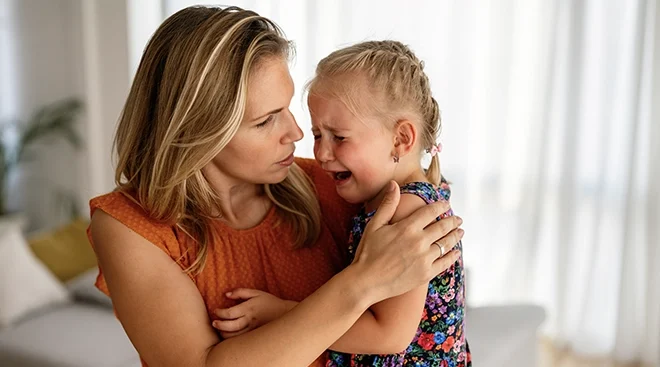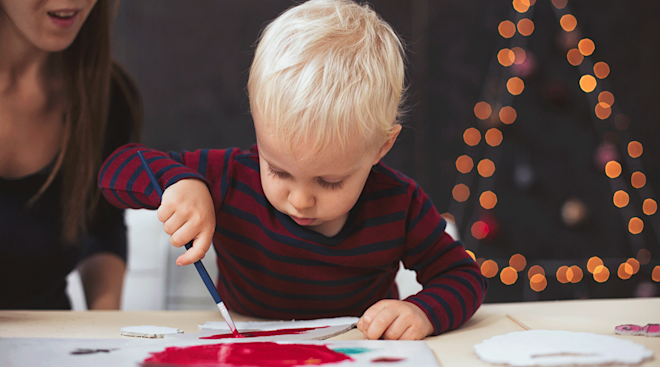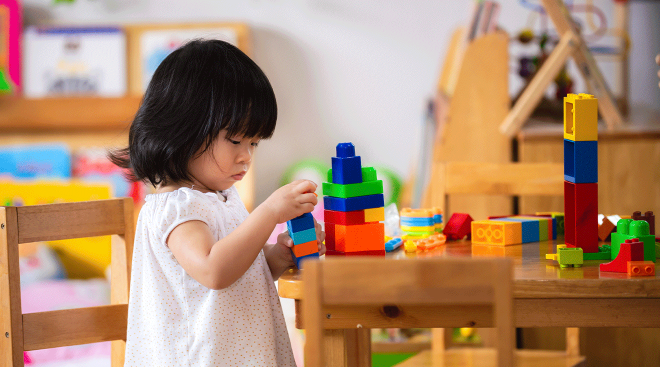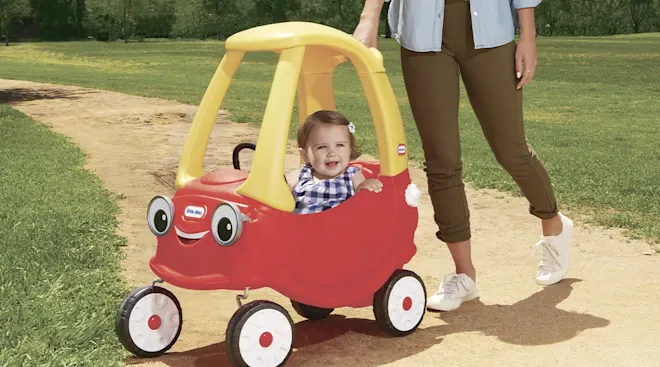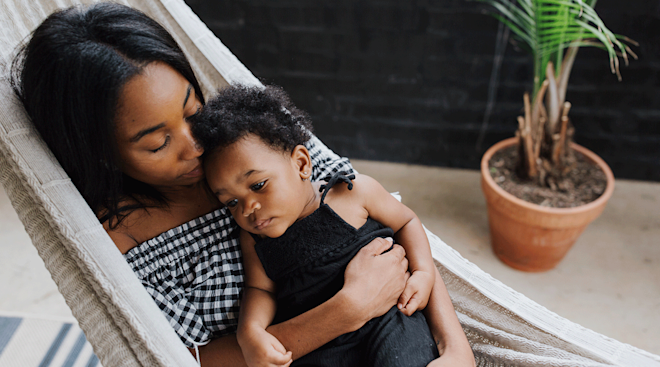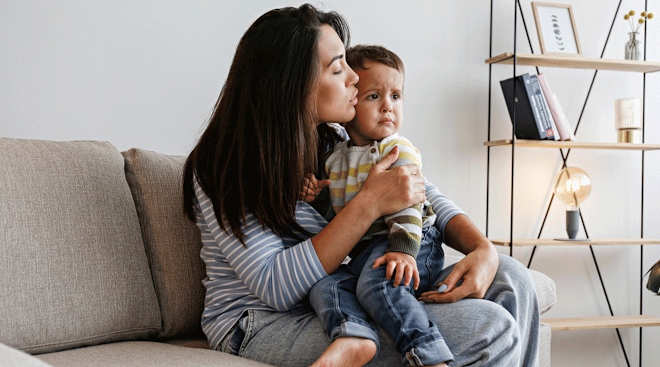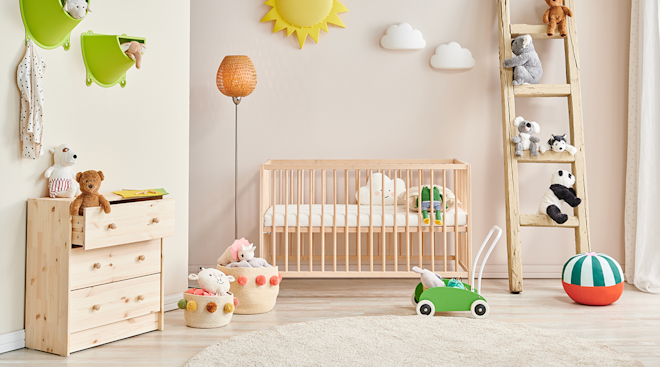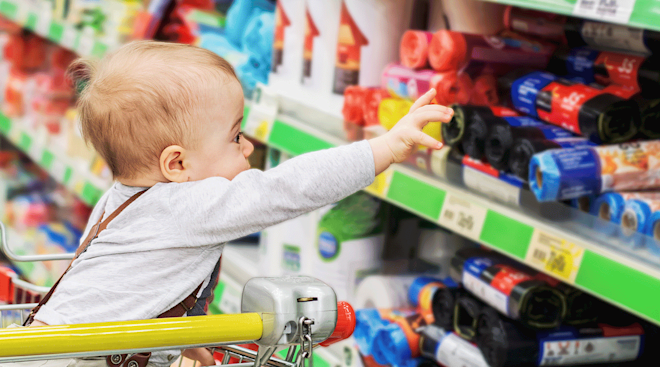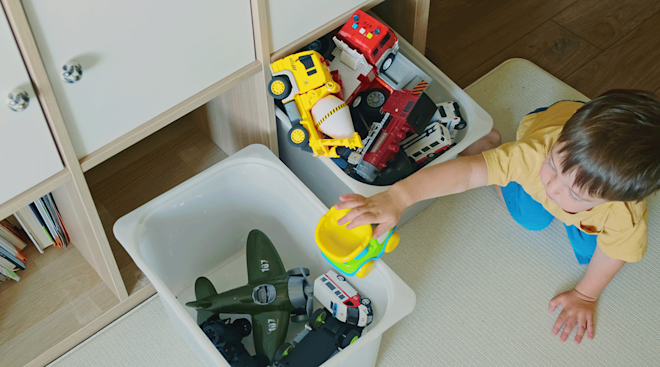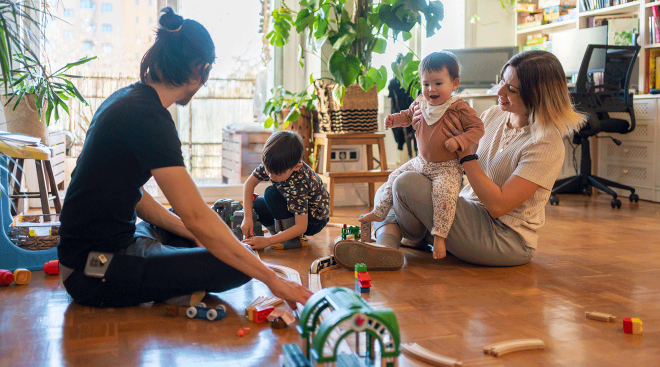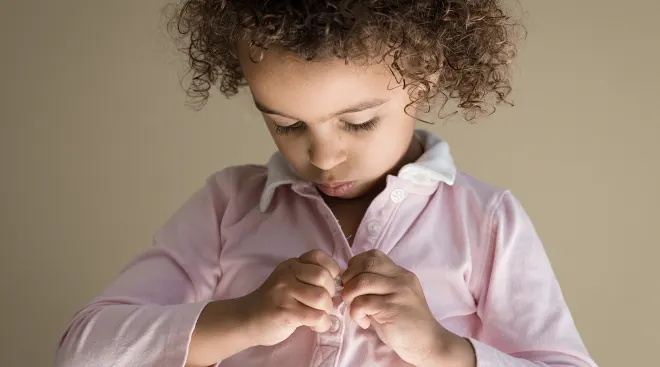What Is Gentle Parenting—and Is It Right for You?
If parenting came with a warning label, it’d probably say something like “Attention: Frustration inevitable.” It’s true that your kids will surprise you just when you think you’ve figured it all out. (Another option? “Good luck.”)
Raising kids has a never-ending learning curve, and you may find yourself figuring things out as you go. Who among us hasn’t experimented with different parenting tactics, lost their tempers, regrouped and adopted a whole new approach? Trial and error is par for the parenting course, and it comes from a good place: You just want the best for your kids.
One option many a weary but hopeful parent turns to when met with behavioral challenges: gentle parenting. It’s all about approaching discipline from a place of compassion and understanding, and it’s recently become very popular—and heavily debated—thanks, in part, to social media. Of course, using gentle parenting techniques can be a whole lot harder than it sounds. It involves showing restraint, regulating your own emotions, keeping your cool and setting the tone—which can be especially trying in the wake of a toddler tantrum. So exactly what is gentle parenting, and is it right for you? Read on to learn more.
The goal of gentle parenting is to approach everyday challenges in a supportive and compassionate way. Gentle parenting guides you to remove blame, validate your child’s feelings and encourage independence. Parenting expert and author Sarah Ockwell-Smith coined the term in 2005 and has helped thousands of families since she began her work. But this mindful approach to parenting has become even more popular in recent years with the rise of social media.
Cara Goodwin, PhD, a licensed clinical child psychologist and mother of three, says that an essential aspect of gentle parenting is helping a child understand their emotions and fostering empathy for others. Essentially, you give your child the respect you want to get back from them. As a bonus, you’ll learn to keep your cool, even in stressful and frustrating situations.
A crucial part of gentle parenting is noticing what Goodwin calls the “positive opposite” of your child’s negative behavior, which means that instead of focusing on what your child did wrong, reinforce when you see them doing something right. Research shows that this positive reinforcement is key to changing negative behaviors.
The goal is to become less reactive and avoid using punishments as a form of discipline. Rather, gentle parenting techniques help you focus on kindness and understanding. Gentle parenting isn’t solely about your response to a stressful situation either. It’s about educating yourself about your child’s development. This includes affirming their feelings, and teaching your child that big emotions are normal. “The end goal isn’t to have a child void of emotions,” says Laura Petix, MS, OTR/L, a pediatric occupational therapist and parenting coach who uses gentle parenting with her daughter.
However, that doesn’t mean that parents are encouraged to give in to their child’s every whim. You can acknowledge your little one’s emotions while still holding a boundary. For example, when Petix was at Disneyland with her daughter, she agreed to buy her a doll. One doll. But her daughter wanted two. So when she started whining, crying and stomping her feet, Petix used gentle parenting techniques, saying, “Ugh, I know they’re both SO cute. It would be so fun to have them both. We are only buying one doll today. You can give this doll a hug, take a picture and put it back, or I can do it for you if it’s too hard to do that.” After the doll was returned to the shelf, she then welcomed and affirmed her daughter’s feelings. “It’s my job to not shush those feelings, distract from them or punish them. Instead, I might offer a hug, a kiss, a squeeze (this looks different for every child) until she feels regulated.”
Using gentle parenting can set your little ones up for success later in life. “When a parent emphasizes emotional experience and provides this type of sensitive caregiving, children will ideally grow up to be more kind, generous and understanding,” says Goodwin.
Research supports the gentle parenting approach. One study found a link between parents’ harsh verbal discipline and adolescents’ aggressive behaviors and depressive symptoms.
Petix says learning how your child’s brain works is one significant benefit of gentle parenting. As adults, we often lose sight of the fact that our kids haven’t yet learned how to act in certain situations. Understanding where your child is coming from strengthens your bond and builds trust.
Additionally, gentle parenting can launch a cycle of positive parenting. Research suggests that this kind of parenting is passed down through generations.
If you’re willing to do the work (and spend the time), you’ll hopefully see positive outcomes in most situations. But no parenting style is perfect, and it can be discouraging when you don’t get the expected results.
There’s a misinformed belief that harsh punishment is necessary for children to “learn their lesson,” says Goodwin, though we know this isn’t the case. Research supports this assertion: Yelling and shaming a child may give you a release in the moment, but it doesn’t help either of you in the long run. Humans learn better with positive reinforcement, which is a central aspect of gentle parenting.
What many critics don’t understand about gentle parenting is that it’s not about ending all negative behaviors and living in a stress-free home. “A big part of gentle parenting is accepting that challenging behaviors are developmentally normal for young children,” explains Goodwin.
Petix adds that social media has fed into perceived problems with gentle parenting and given many parents a “surface-level understanding” of the approach. It’s commonly confused with permissive parenting, in which the child gets to make all the decisions.
Gentle parenting takes dedication. Consistency can be more challenging for parents with different family types. Single parents, families with multiple children or parents of children with disabilities may find it difficult to implement. Parents of neurodivergent or spirited children can use gentle parenting, says Goodwin, but it can be challenging to remain calm with children who have more frequent, intense meltdowns. You may find it beneficial to seek additional support from a mental health professional.
Additionally, parents who have suffered trauma during childhood may have difficulty using gentle parenting strategies. Therapy for adverse childhood experiences is an excellent way for those parents to work through their own triggers.
If you’re thinking about adopting some gentle parenting techniques, start by considering whether your child’s behavior is appropriate for their age. “Children often show challenging behavior because they’re missing skills rather than purposely misbehaving or trying to give you a hard time,” says Goodwin. “Effective parents focus on helping their children learn these skills rather than simply punishing the behavior.” Below, some tips to get started on your journey to gentler, more mindful parenting:
Set up your child for success
Discuss expectations for your child ahead of time. When talking about a plan, have them repeat it, so you know they heard you, advises Petix. A visual timer can be helpful if you’re giving them a specific amount of time to do an activity.
Have a plan when the meltdown happens
After holding firm to your boundary, there may be a meltdown. Sit with your child and keep them safe. Petix suggests saying something like, “I’m going to pick you up and move you away from the blocks to keep you safe.”
Choose your words wisely
Goodwin suggests using different words to say the same thing. Avoid saying, “If you yell again, no iPad for the rest of the week.” Instead try, “Let’s remember to use our inside voices when we’re inside. Can you show me how you use your inside voice?” Your approach is a large part of gentle parenting.
Allow mistakes
“Allow your child to make their own choices (to a certain extent), including their own mistakes,” says Goodwin. Mistakes are a part of life. “Respect their independence, and correct their behavior when necessary,” she adds
Talk about emotions
Naming how you feel in the moment is a great way to introduce emotional regulation to your child, explains Goodwin. You can also discuss feelings that a book or TV character is experiencing.
Be present with your child
“Spend one-on-one ‘special time’ with no distractions on a regular basis,” says Goodwin. She adds that this is one of the most effective strategies to improve the parent-child relationship.
Follow up later
Petix says that bedtime presents an ideal opportunity to check in, when your child is (hopefully) calming down for the night. It allows them to see the situation from the outside and process their feelings.
Take inventory
Still unsure how to gentle parent when you have so many stressors? Take stock of your child’s behaviors and think about which ones trigger you the most. Goodwin emphasizes how important it is for parents to then regulate their own emotions. It’s easy to have a trigger reaction; it takes work to be more respectful and mindful.
Above all else, show your child your love—no matter how hard they may be testing you. And if you’re struggling, seek support and practice mindfulness in your own life. Your children deserve you at your best—and that means you need to be kind and gentle with yourself too.
Please note: The Bump and the materials and information it contains are not intended to, and do not constitute, medical or other health advice or diagnosis and should not be used as such. You should always consult with a qualified physician or health professional about your specific circumstances.
Plus, more from The Bump:
Cara Goodwin, PhD, is a licensed clinical child psychologist and mother to three children. She specializes in child development and has spent years researching child psychology and neuroscience, and providing therapy for children of all ages and parent training. She is the founder of the nonprofit organization Parenting Translator, which translates recent scientific research into information that is relevant and accurate. Goodwin is also a bestselling author of the children's book What To Do When You Feel Like Hitting.
Laura Petix, MS, OTR/L, is a pediatric occupational therapist and parent coach at The OT Butterfly.
The Brown University Child and Adolescent Behavior Letter, Catching kids being good: A practical guide to Positive Behavioral Interventions and Supports, October 2017
Child Development, Longitudinal Links Between Fathers’ and Mothers’ Harsh Verbal Discipline and Adolescents’ Conduct Problems and Depressive Symptoms, September 2013
Journal of Family Psychology, Intergenerational continuity in economic hardship, parental positivity, and positive parenting: The association with child behavior, February 2016
American Academy of Pediatrics, Effective Discipline to Raise Healthy Children, December 2018
Learn how we ensure the accuracy of our content through our editorial and medical review process.
Navigate forward to interact with the calendar and select a date. Press the question mark key to get the keyboard shortcuts for changing dates.
































